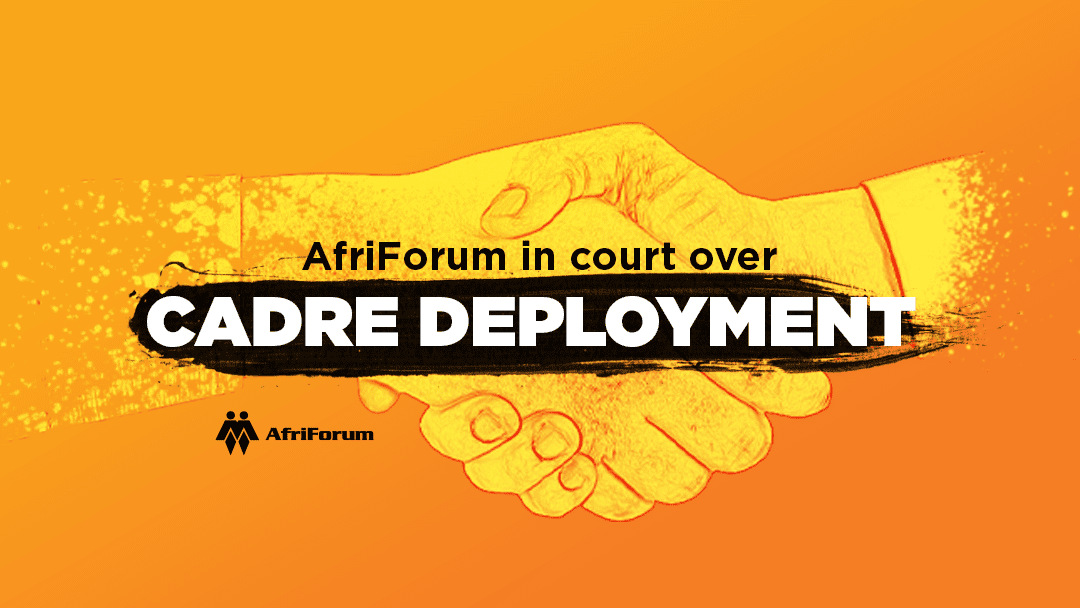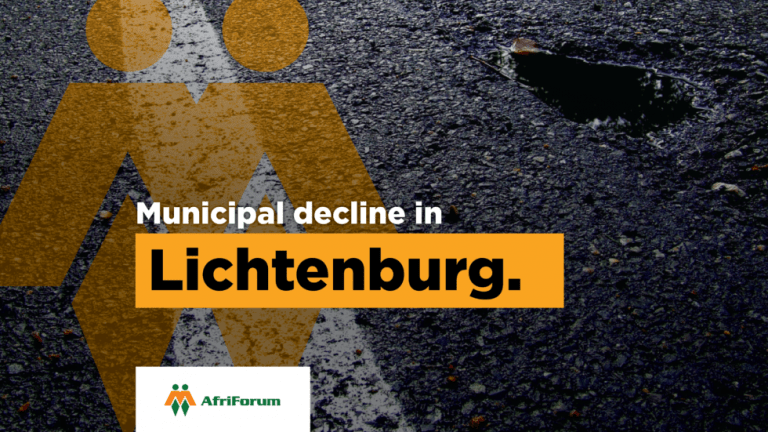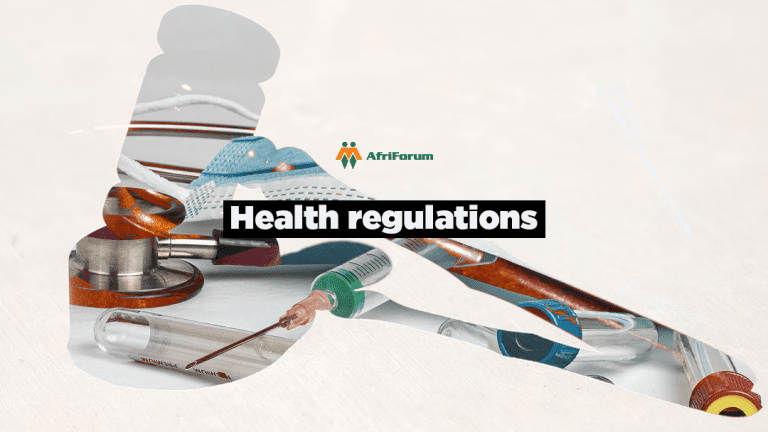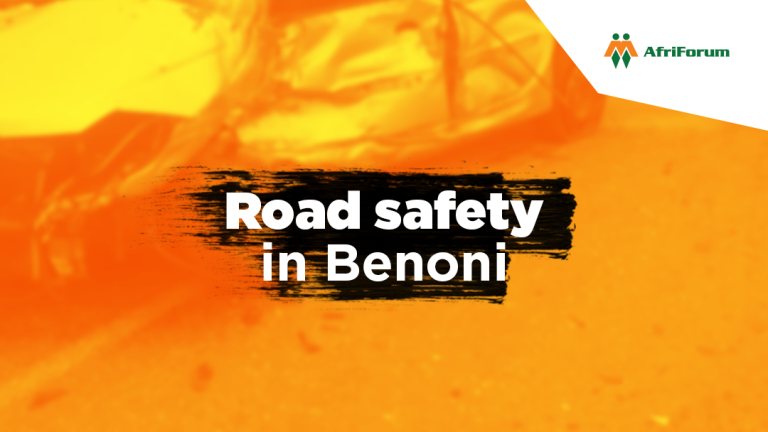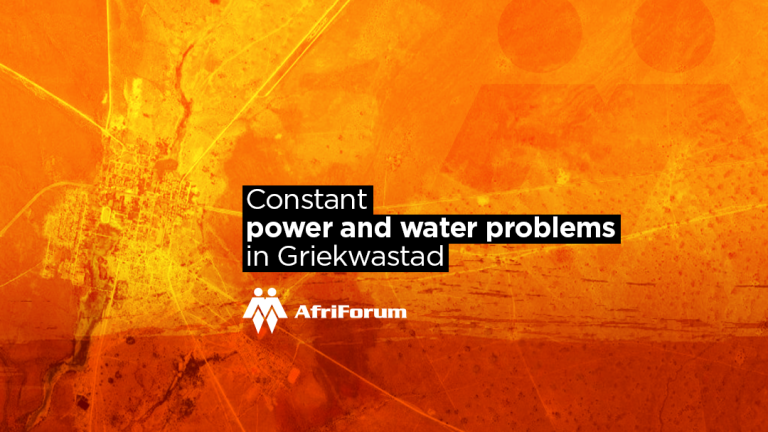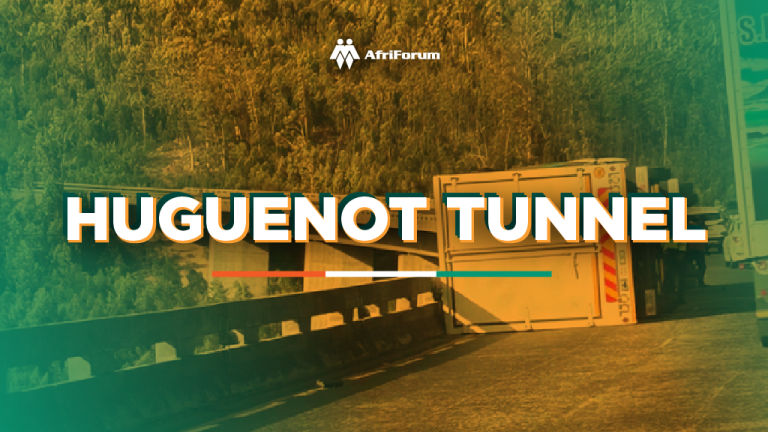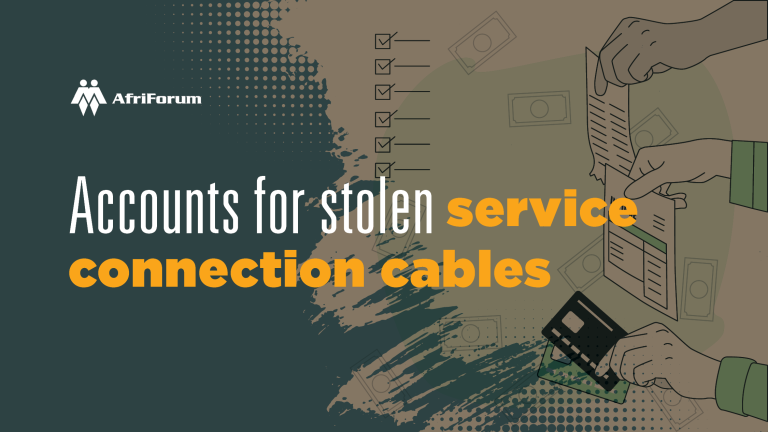AfriForum in court over cadre deployment
No more jobs for pals: AfriForum in court over cadre deployment
AfriForum filed court papers to enter the Democratic Alliance’s (DA) case against cadre deployment. AfriForum will appear as a friend of the court in a far-reaching case against the ANC government’s policy of cadre deployment. The civil rights organisation argues that cadre deployment is tantamount to discrimination based on political affiliation. In other words: Job opportunities in the public administration sector are limited for those who are not ANC members and who therefore do not “qualify” for cadre deployment.
The legacy of this policy is that service delivery in the public sector has deteriorated to such an extent that only 19% of government departments and entities are receiving clean audits. For AfriForum, it is about the principle that political parties, upon taking power, must be prohibited from abusing their power to implement discriminating and destructive policies that only benefit their cadres. Lastly, AfriForum argues that cadre deployment is clearly in violation of the Constitution and the supremacy of justice. It is on these legal grounds that AfriForum is optimistic that justice will prevail, and that cadre deployment will be prohibited.
AfriForum advocates a society that is free from any form of discrimination and in which the supremacy of justice is maintained. For this reason, AfriForum must vigorously act against the ANC government’s discriminating, destructive and unlawful application of cadre deployment. If the court prohibits cadre deployment, it will play an enormous role in reversing the deterioration of government institutions and preventing discrimination against members of the public. Become a member and help us bring cadre deployment to an end.
Five consequences of cadre deployment
1. Discrimination on the grounds of political affiliation
Cadre deployment is institutionalising and normalising discrimination on the grounds of political affiliation. Because the ANC discriminates against people who do not support the party, it limits employment opportunities in the public administration sector for anyone who do not qualify for cadre deployment. When certain people enjoy preferential treatment while others are being discriminated against, it results in vacancies not being filled by the best possible candidates. Cadre deployment therefore boils down to the abuse of political power to apply pro-cadre policies by discriminating against a large section of the citizenry to the detriment of society as a whole. This blatant discrimination also undermines social cohesion by sending out the message that, in the words of George Orwell, some people “are more equal than others”.[1]
2. The deterioration of the public administration sector
Because the discriminating policy of cadre deployment means that vacancies are not filled based on merit, it causes the inevitable deterioration of the public administration sector. Only 19% of South African governmental departments and institutions received clean audits from the Auditor-General in its latest report. The same report shows that the national government was responsible for fruitless and wasteful expenditure to the value of R1 billion.[2] The most vulnerable people in society are often affected the worst by mismanagement and corruption, as the Covid-19 pandemic has once again showed. The Special Investigating Unit investigated about 10% of the total R152,5 billion that was spent on the Covid-19 Relief Fund. It found finalised irregularities in the awarding of contracts to the value of R7,9 billion from a total amount of R13,4 billion, and cases comprising R2,1 billion were referred to the Special Tribunal.[3]
3. The deterioration of infrastructure and service delivery
The discriminating and unmeritocratic appointment of public officials and the consequent decline of the management standards caused the country’s infrastructure to deteriorate. Railroad, road and other infrastructure are on the verge of complete collapse due to cadre deployment and the concomitant awarding of BEE contracts to contractors with political connections. The result of poor public logistic infrastructure had an almost incalculably negative impact on the country’s economy.[4]
Cadre deployment also plays a major role in the mismanagement of South Africa’s public healthcare system, which is illustrated in a recent report. Only the Western Cape’s health department succeeded in obtaining a clean audit in the most recent audit of provincial health departments. In another damning report, the Public Protector found that the quality of healthcare in government hospitals in certain provinces under ANC rule have deteriorated to such an extent that it violates patients’ rights.[5] Due to the mismanagement of the healthcare system by ANC cadres, there is a serious shortage of doctors, with a doctor/patient ratio of 0,32 per 1 000 patients in South Africa. This ratio is much smaller than other developing nations, for example Mexico (2,44:1 000) and Brazil (2,32:1 000). The systematic deterioration of the health sector can also be illustrated by the fact that South Africa had 0,79 doctors per 1 000 patients in 2019.[6]
Cadre deployment has also led to the collapse of South Africa’s educational system. South Africa spends similar per capita funds on education than most other countries in the Organisation for Economic Co-operation and Development,[7] but the country’s educational system was once placed second last in a recent ranking of 75 countries.[8] The reason for the deterioration of the educational system is therefore not a lack of funds, but the fact that funds are being misappropriated and wasted by government departments in which cadre deployment is at the order of the day.
The country’s water and sanitation infrastructures have suffered under decades of serious mismanagement – largely attributable to cadre deployment. In the 2020/2021 financial year the Department of Water and Sanitation was responsible for irregular expenses to the amount of R9,63 billion, which were not condoned, written off or recovered speedily.[9] The recent Green dot report points out that a shocking 50% of waste water facilities do not treat sewage properly, and that 39% of these facilities are in a critical condition. An ecological disaster is looming because a lot of sewage is not even treated by these facilities but released directly into the environment.[10] It is also reported that city centres are losing 50% or more of their water due to water leakages.[11]
Cadre deployment also attributed greatly to the almost complete collapse of South Africa’s state-governed energy producer, Eskom. In the early 2000s Eskom was a world-class energy producer that provided large volumes of electricity to Southern Africa.[12] Unfortunately, two decades of ANC management and cadre deployment brought Eskom to the edge of disaster. The implementation of load shedding in the first six months of 2022 is already more than the total implementation of load shedding in 2020. According to conservative estimates, phase 6 load shedding has cost the country already in the region of R4 billion per day,[13] but experts argue that the true extent of the damage caused by load shedding is incalculable, since foreign investors are disinvesting in South Africa because of the energy uncertainty.[14]
4. Unemployment and dependence on the state
The corruption, misappropriation and economic decline that go hand in hand with cadre deployment have the lion’s share in the unemployment rate of 46,2% (according to the broad definition) recorded in March 2022.[15] This high unemployment figure – coupled with a government policy that is attempting to take over the role of the private sector – exacerbates dependence on the state. It was announced during the reading of the budget for 2022 that 46% of South Africans are dependent on social government grants. These grants are funded by a thin and declining tax base (it is calculated that just more than 5% of South Africans pay 91,8% of all income tax).[16] Above all, these grants are in most cases hardly sufficient for people to survive on; it therefore poses no long-term solution for poverty. Such grants are not sustainable, as it is well known that South Africa finds itself at a fiscal cliff. This means that the interest on state debt, civil service salaries and social welfare grants are more than the total income of the state.
The government’s main function is to create a space in which the private sector can work and create prosperity. However, at this stage government is attempting to take over the role of the private sector.
5. Crime
The results of the poor management that came about with cadre deployment are visible in the current lawlessness in the country. Crime increased significantly after the lockdown that had been in force during the pandemic. According to the South African Police Service, 12 942 murders were committed between October 2021 and March 2022, while 22 133 cases of rape were recorded over the same period.[17], [18] This translates to 71 murders and 121 cases of rape per day. The level of police failure and the overall unsafeness in the country on ground level are further exposed by the fact that there currently are three times more private security officers (557 277)[19] in service than police officers (182 126).[20] Minister Bheki Cele’s recent fit of anger – when confronted by concerned member of the public at a community meeting on crime concerns – speaks volumes about the lack of accountability that cadre deployment nurtures.
[1] Orwell, G. 1987. Animal farm. Boston: Mariner Book.
[2] Auditor-General of South Africa. 2021. Consolidated general report on national and provincial audit outcomes. Available at https://www.agsa.co.za/Portals/0/Reports/PFMA/202021/Consolidated%20PFMA%20General%20Report%202020-21%20-%20FINAL%208%20December.pdf?ver=2021-12-08-114517-993. Accessed on 12 September 2022, pp. 3 & 53.
[3] Special Investigating Unit. 2021. Final report to the President in terms of section 4(1)(f) of the Special Investigating Units and Special Tribunals Act No. 74 of 1996. Available at https://www.gov.za/sites/default/files/gcis_document/202201/final-consolidated-report.pdf. Accessed on 12 September 2022, pp. 4–7.
[4] Gumede, W. 2022. SA’s entire infrastructure is on the verge of total collapse. Available at https://www.wits.ac.za/news/latest-news/opinion/2022/2022-07/sas-entire-infrastructure-is-on-the-verge-of-total-collapse.html. Accessed on 19 August 2022.
[5] Evans, J. 2021. Public Protector investigation finds that hospitals violate South Africans’ rights. Daily Maverick, 3 October. Available at https://www.dailymaverick.co.za/article/2021-10-03-public-protector-investigation-finds-that-hospitals-violate-south-africans-rights/. Accessed on 5 July 2022.
[6] BusinessTech. 2022. Critical doctor shortage in South Africa. 9 May. Available at https://businesstech.co.za/news/lifestyle/584540/critical-doctor-shortage-in-south-africa-raises-concerns-for-governments-nhi-plans/. Accessed on 18 Augustus 2022.
[7] Mlachila, M. & Tlhalefang M. 2019. Struggling to make the grade: A review of the causes and consequences of the weak outcomes of South Africa’s education system. Available at https://www.imf.org/en/Publications/WP/Issues/2019/03/01/Struggling-to-Make-the-Grade-A-Review-of-the-Causes-and-Consequences-of-the-Weak-Outcomes-of-46644. Accessed on 22 September 2022, pp. 49–51.
[8] Workman, M. 2020. Our education system is broken, and unless we fix it, all else is doomed. Daily Maverick, 26 November. Available at dailymaverick.co.za/article/2020-11-26-our-education-system-is-broken-and-unless-we-fix-it-all-else-is-doomed/#:~:text=In%202020%20a%20survey%20was,a%20total%20of%2076%20countries. Accessed on op 22 September 2022.
[9] Auditor-General van Suid-Afrika. 2021. PFMA 2020-21 Consolidated gGeneral Rreport on nNational and pProvincial aAudit oOutcomes. Auditor-General South AfricaAvailable at https://www.agsa.co.za/Portals/0/Reports/PFMA/202021/Consolidated%20PFMA%20General%20Report%202020-21%20-%20FINAL%208%20December.pdf?ver=2021-12-08-114517-993. Accessed on 12 September 2022, bl. 67.
[10] Kretzmann, S. 2022. ‘A tsunami of human waste’ – Half of SA’s sewage treatment works are failing, says report. Daily Maverick, 21 Junie. Available at https://www.dailymaverick.co.za/article/2022-06-21-a-tsunami-of-human-waste-half-of-sas-sewage-treatment-works-are-failing-says-study/. Accessed on 12 Julie 2022.
[11] Carnie, T. 2022. Enormous amounts of water are wasted daily – now municipalities are being told to ‘stop the leaks’. Daily Maverick, 17 Maart. Available at https://www.dailymaverick.co.za/article/2022-03-17-enormous-amounts-of-water-are-wasted-daily-now-municipalities-are-being-told-to-stop-the-leaks/. Accessed on 22 Junie 2022.
[12] Janse van Rensburg, R. 2022. 6 reasons you are paying more for electricity due to BEE. 24 Julie. Available at https://solidariteit.co.za/en/6-reasons-you-are-paying-more-for-electricity-due-to-bee/. Accessed on 25 Julie 2022.
[13] BusinessTech. 2022. Stage 6 load shedding costs South Africa over R4 billion per day: economist. 1 July. Available at https://businesstech.co.za/news/energy/602056/stage-6-load-shedding-costs-south-africa-over-r4-billion-a-day-economist/. Accessed on 12 July 2022.
[14] AfriForum.2022. Polities Inkorrek – S2 E4: Beurtkrag [YouTube-video]. 20 July, at 03:10–3:30. Available at https://www.youtube.com/watch?v=4J1gH4M6k_E. Accessed on 1 September 2022.
[15] Fin24. 2022. After long delay, Stats SA confirms record unemployment rate. 29 March. Available at https://www.news24.com/fin24/economy/after-a-long-delay-stats-sa-confirms-record-unemployment-rate-20220329. Accessed on 2 September 2022.
[16] Solidarity Research Institute. 2021. Income tax flash report. Available at https://solidariteit.co.za/wp-content/uploads/2021/09/BelastingBlits_ENG.pdf. Accessed on 20 August 2022.
[17] South African Police Service. 2021. Police recorded crime statistics. Available at https://www.saps.gov.za/services/downloads/third_quarter_presentation_2021_2022.pdf. Accessed on 6 July 2022.
[18] Ibid.
[19] BusinessTech. 2022. Big shift for private security in South Africa. 25 April. Available at https://businesstech.co.za/news/business/580502/big-shift-for-private-security-in-south-africa/#:~:text=The%20total%20number%20of%20registered,the%20Western%20Cape%20(12%25). Accessed on 6 July 2022.
[20] BusinessTech. 2022. Here’s how many police officers there are in South Africa- and what they earn. 24 April. Available at https://businesstech.co.za/news/government/579116/heres-how-many-police-officers-there-are-in-south-africa-and-what-they-earn/#:~:text=By%20comparison%2C%20its%20most%20up,an%20effective%20decrease%20of%208.8%25. Accessed on 24 April 2022.


